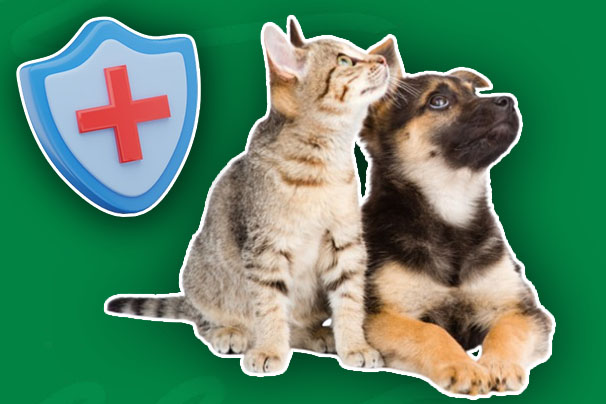Life Insurance for Pets- Life insurance can provide financial security to loved ones in the unfortunate event of the policyholder’s passing. In addition, it can help ensure that dependents are taken care of, especially when they need it the most. But have you considered purchasing life insurance for your pet?

As you know, a pet plays an invaluable role in our lives as a cherished companion. Although they don’t contribute financially to a household, the idea of insuring your pet might seem unconventional.
Nonetheless, there are certain situations where you might consider life insurance for your pet. In this article, we will explore the concept of getting life coverage for your pet, what it means, how it works, coverage, cost, and more.
What is Life Insurance for Pets?
Pet life insurance, also known as animal mortality insurance, pays a benefit to pet owners if their pet dies. The benefit can help cover burial or cremation costs and other costs depending on the policy’s terms.
This insurance is different from pet insurance, which covers the cost of medical expenses and treatments for illnesses and accidents.
As you know, losing your pet or a valuable service animal can be an emotional blow with financial consequences, especially if the animal plays a critical role in your business or household.
This insurance, however, considers age, health, and lifestyle. Also, it has a strict qualification that requires your insured animals to be considered an investment of high value.
You must understand how it works to decide whether it is a worthwhile investment. Check out the next outline for how life insurance for pets works.
How Does it Work?
This insurance provides financial coverage for pets in case of injury, death, or disability, depending on the policy. Life insurance for pets is mainly designed for high-value animals, including show or breeding pets, livestock, racehorses, service dogs, and zoo animals.
To be eligible for this insurance, several factors, such as the animal’s breed, age, and health status, are considered. Furthermore, you might need to provide value documentation justifying the animal’s significance.
Most insurers will request a veterinary certificate of examination to prove the animal’s health before your policy is approved. In case of a loss or fatality, you will have to submit a claim and provide the death certificate from a veterinarian to receive the death benefit.
What Does Life Insurance for Pets Cover?
If you’re interested in purchasing this insurance, you must consider what is covered and what is not covered. The following are some of the coverage options offered by this insurance:
- Theft Protection for Animals
- Comprehensive Animal Mortality Coverage
- Partial Animal Mortality Coverage
- Transit Insurance for Livestock or Equines
- Insurance for Livestock Feeding and Growth Facilities
- Long-Term Disability Benefits
- Loss of Revenue Coverage (for the time needed to replace your pet)
- Optional Medical Endorsements
- Coverage for Major Medical or Veterinary Services
Common Risks and Causes of Death Covered by Pet Life Insurance:
- Accidental shooting or drowning (excluding acts by the insured or their employees)
- Transit-related accidents, including during loading or unloading
- Structural collapses, such as bridges, buildings, or culverts
- Death caused by fire, floods, tornadoes, earthquakes, lightning, or other natural disasters
- Disability or diseases
- Electrocution or explosions
- Illness resulting from injuries
- Animal theft without requiring a death certificate
- Attacks by wild animals or predators
It is, however, important to note that certain breeds may be excluded from coverage due to hereditary or congenital conditions.
Many policies also exclude natural causes of death or illnesses unrelated to injuries.
Hence, ensure you research and compare different plans to understand their benefits and limitations, as this will enable you to make an informed decision.
How Much Does it Cost?
Pet life insurance comes in the form of annual premiums; this is similar to how you would pay for your pet’s health insurance. However, certain factors may affect the cost, and they include:
- Breed
- Age of the pet
- Health and Medical History of Your Pet
- Location
- List of covered perils
- Cost of the animal
- Species of animal
- Function of animal, e.g., service, show, livestock, sporting, etc.
- Value of animal, for instance, the animal requires extensive training or earns extensive revenue
It is also important to note that cost and coverage can vary from insurer to insurer. Hence, it is best you get several pet life insurance quotes to ensure you get the best value for your investment.
Is Life Insurance for Pets Right for You?
Determining whether this insurance is right for you is based on your financial situation and the potential financial impact of losing the animal.
Purchasing this insurance can cost thousands, so we advise you to take time to research the company’s coverage options, ratings, and customer reviews.
This insurance can offer financial support if the unthinkable occurs, especially if your emotional and financial peace of mind outweighs pricey premiums.
You can also consider getting pet health insurance if you have a regular pet with additional coverage such as euthanasia, cremation, burial, and grief counseling.
